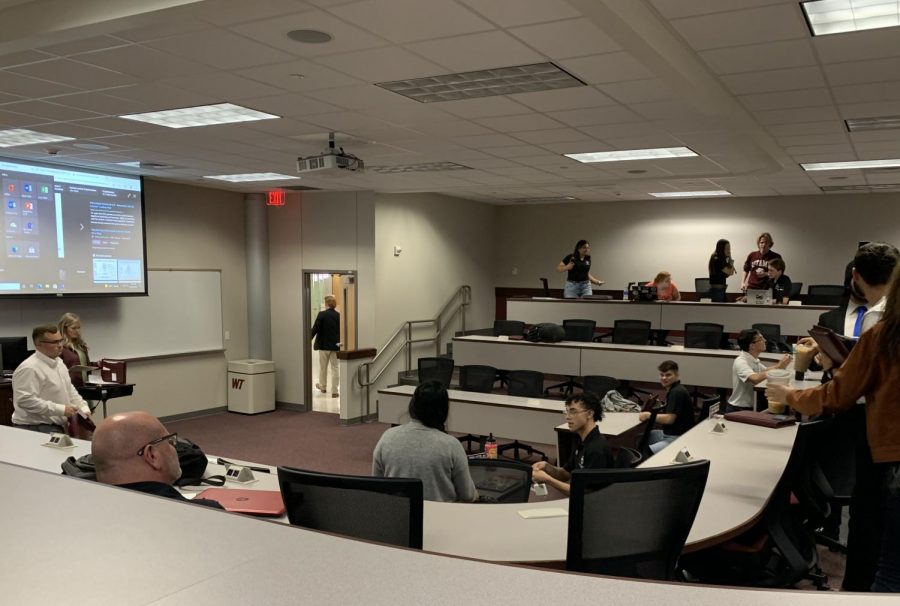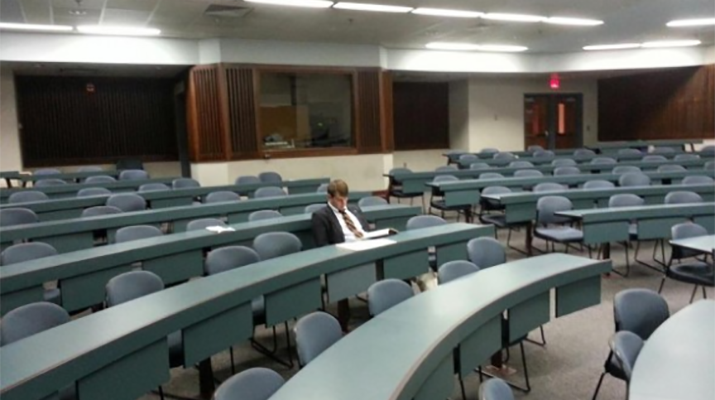Yes, low attendance can lead to being kicked out of university. Each university has its attendance policies, and consistently falling below the required attendance level may result in serious consequences, including dismissal.
Further, students need to be aware of and adhere to their university’s attendance guidelines to avoid such outcomes. Seeking support and addressing any challenges early on can help prevent severe consequences.
Why is attendance so important?

Academic Engagement: Attending classes ensures that students are actively engaged in the learning process. Lectures and seminars provide essential information, context, and explanations that might not be available through textbooks or online resources. Participating in discussions and asking questions can deepen understanding and clarify concepts.
Access to Information: Important announcements, changes in schedule, assignment details, and exam information are often communicated during classes. Missing classes may result in students being unaware of crucial updates, leading to confusion and potential academic setbacks.
Opportunity for Interaction: Classroom settings provide students with the opportunity to interact with professors and classmates. Discussions, group activities, and collaborative projects foster a deeper understanding of the subject matter and enhance interpersonal skills. Networking with peers and faculty can also be valuable for future academic or professional endeavors.
Structured Learning Environment: Class attendance helps maintain a structured learning environment. Students who attend regularly are more likely to adhere to a study schedule, complete assignments on time, and stay organized. This structure contributes to better time management and academic success.
Social Support: University can be a challenging transition, and attending classes allows students to connect with their peers. Building a support network within the academic community can help combat feelings of isolation or homesickness, providing a sense of belonging.
Access to Resources: Some information provided in class may not be available through textbooks or online materials. Professors often share additional resources, examples, or insights during lectures, enhancing the learning experience and contributing to a more comprehensive understanding of the subject matter.
Attendance Policies: Many universities have attendance policies that may impact grades. Some courses may have mandatory attendance requirements, and missing too many classes could result in academic penalties. Being aware of and adhering to these policies is crucial for maintaining academic standing.
Why Your University Attendance May Be Low?
There are various reasons why university attendance may be low, and both students and universities must understand and address these issues:
Medical Reasons: Students may have health issues, illnesses, or medical appointments that prevent them from attending classes. Students need to communicate any health concerns to the university so that appropriate accommodations and support can be provided.
Academic Pressure: Some students may prioritize individual study time, especially around assignment deadlines or exams. While independent study is valuable, consistently missing classes can lead to a lack of understanding of course material and missed opportunities for interaction and support.
Registration Issues: In some cases, students may forget to sign attendance registers or face technical issues with class registration. This administrative aspect can lead to inaccuracies in attendance records, and students should promptly address such issues with their lecturers or university administration.
Mental Health Challenges: They may face mental health issues, such as anxiety or homesickness, which can impact their ability to attend classes regularly. Universities often have support services and counselors available to help students navigate these challenges.
Personal or Family Circumstances: Personal or family emergencies, responsibilities, or commitments can also contribute to low attendance. Students facing such situations should communicate with their instructors and seek appropriate support from the university.
Lack of Interest or Engagement: Some may have low attendance due to a perceived lack of interest in the course material or teaching methods. Identifying the root cause of disengagement and finding ways to make the material more engaging can be beneficial.
Communication Issues: Students may need to be made aware of the importance of attendance, class policies, or the potential impact on grades. Clear communication from instructors and the university regarding attendance expectations and consequences is essential.
Transportation and Commuting Challenges: Students who face difficulties with transportation or have long commutes may find it challenging to attend every class. Universities may need to consider flexible attendance policies or alternative arrangements for such cases.
Work Commitments: Some students may have part-time jobs or work commitments that conflict with class schedules. Balancing work and academics can be challenging, and universities may need to explore flexible scheduling options.
Where To Get Support With Your University Attendance?
To seek assistance with your university attendance, it is advisable to initiate communication with your designated academic tutor, typically assigned during your first year, and offer continuous support throughout your academic journey.
Moreover, your academic tutor is well-equipped to aid you in various aspects of your studies, including addressing concerns related to attendance. Additionally, they can guide you to additional support services, such as counseling, if necessary.
In the event of low attendance within a specific module, it is beneficial to engage with your lecturers, particularly your module tutor. If attendance issues extend across your entire course, reaching out to your course leader becomes crucial.
Also, most universities provide access to specialized support staff who can offer assistance on diverse matters. Whether it’s related to mental health, homesickness, disabilities, medical conditions, financial challenges, or general organizational issues like timetabling, these professionals can be accessed independently or through your academic tutor, often at no additional cost. Seeking their guidance can contribute to a more comprehensive and tailored approach to addressing your concerns.
What Happens If Your Attendance Is Below 80% At University?

Warning Notifications: Universities often have automated systems that generate warning notifications if your attendance drops below a certain percentage, which is typically around 80%. These notifications serve as an alert to bring attention to the issue.
Academic Monitoring: Your academic progress may come under increased scrutiny if your attendance remains consistently below the acceptable level. Academic advisors, tutors, or department heads may start monitoring your performance more closely.
Academic Support Meetings: Some universities may require you to attend meetings with academic advisors, course leaders, or tutors to discuss the reasons behind your low attendance. These meetings aim to understand any challenges you might be facing and explore potential solutions.
Impact on Assignments and Examinations: Low attendance can affect your performance in assignments, coursework, and examinations. Some may take this into account when assessing your academic progress and may offer support or adjustments if necessary.
Intervention Programs: They may have intervention programs in place to support students with attendance issues. These programs could include additional academic support, counseling services, or referrals to other relevant resources.
Probationary Periods: In some cases, students with consistently low attendance may be placed on academic probation. During this period, students may be required to meet specific conditions, such as attending additional classes or workshops, to improve their academic standing.
Termination of Enrollment: If your attendance remains persistently low and you do not respond to support mechanisms, there is a risk of termination of enrollment. This means you may be asked to withdraw from the course or program.
FAQ’s
What is acceptable uni attendance?
Attendance requirements can vary across universities. For example, at some institutions for the academic year 2023-2024, students might be required to attend a minimum of 60% of all academic activities like lectures, seminars, labs, etc., while at other universities, the attendance requirement might be different.
Is it okay to be absent from university?
Yes,Universities often permit students to take a leave of absence for up to one year. During this time, students remain enrolled but are not actively taking classes. Such approved leaves usually safeguard a student’s status and academic progress.
Can I get kicked out of college for bad attendance in the UK?
Yes,Unsatisfactory attendance and engagement may risk a student’s academic success and could lead to withdrawal from the university. Consistent lack of attendance or engagement might result in a student being asked to leave.
How much attendance is required in university for international students in the UK?
Attendance requirements for international students can be stringent, often mandating attendance for all classes, meetings, and tutorials. Reporting any unavoidable absences promptly is typically essential, and maintaining a high attendance percentage is a student’s responsibility.
What is the minimum attendance for a university in the UK?
Universities might set various attendance thresholds. Some institutions may require an attendance rate of 80%, while others intervene or offer support if attendance drops below a certain percentage, such as 50%. The precise threshold can vary among universities.
Final Words
The possibility of being expelled from university due to low attendance is a real concern. Universities enforce attendance policies to ensure active student engagement in courses.
Moreover, students must familiarize themselves with their institution’s attendance guidelines, proactively address any challenges that may impact attendance, and seek support when needed. By prioritizing regular attendance and staying informed about the consequences, students can contribute to a more successful and fulfilling academic experience.

